Atelier Series Where To Start
ate·lier | \ ˌa-tᵊ l-ˈyā \ (noun)
ane. An artist's or designer's studio or workroom. | ii: Workshop.
In 1997, the small-scale Japanese development studio Gust accidentally stumbled onto a formula (and franchise) that would grow into something they could not have imagined. Prior to the start game in that series, Atelier Marie, they had released ane PC-98 game and four PlayStation games with middling response in Nippon. After Atelier Marie, however, things began to take a turn for the ameliorate, and within the adjacent five years, the Atelier franchise would go on to have five main titles and ane spin-off.
To date, those first five games have never officially left Japan. While ane might — and I do — hold out hope for localization, it is unlikely to come up without significant Japanese ports or remakes. For comparison, consider the decades-long lag on localizations for games such equally Romancing SaGa 2, Romancing SaGa 3, Trials of Mana (Seiken Densetsu 3), Earthbound Ancestry, Persona 2 Innocent Sin, Moon, and then many others.
Many titles in this series have been localized since, so with that in listen, any gamer new to the franchise without knowledge of the Japanese linguistic communication might wonder: where to begin? To answer this question, it is of import to sympathise the development of the serial' story and mechanics, equally well as the anthologizing phenomenon.
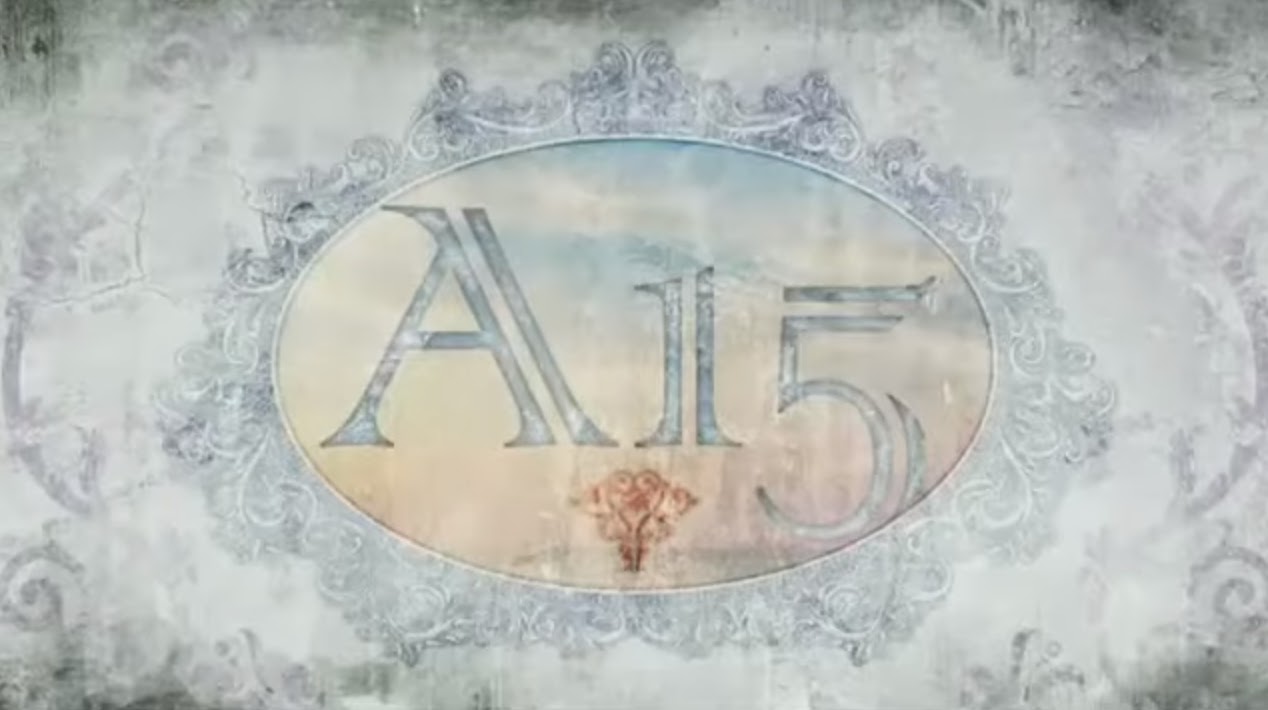
Identifying Society: Project A#
Starting with the latter point first: the Atelier serial has a primary, numbered franchise, though the numbers tend to exist hidden in title screens and in tiny text on different portions of the packaging. For case, Atelier Marie is "Projection A1," Atelier Iris ~Eternal Mana~ is "Projection A6," and Atelier Ayesha is "Project A14." As of the time of this article's publication, the latest championship in the master series is Atelier Ryza, "Project A21." One might discover this a daunting collection of games, then, equally the franchise quantifies well beyond mainstay Japanese RPGs such as Dragon Quest, Final Fantasy, and even Fire Keepsake.
Regarding the development of the franchise: the non-localized titles began with light RPG elements, focusing more significantly on the work of alchemy. Alchemy is central to the entire franchise, every bit your atelier — your workshop — mostly involves a cauldron wherein all sorts of magical, mystical, and pseudo-scientific phenomena occur. Every bit the series began to evolve, Gust went out on a limb and attempted a more than linear, gainsay-focused RPG with Atelier Iris ~Eternal Mana~. At the end of that trilogy, Gust began to dabble with time management mechanics and would later on go full strength with those mechanics in the Mana Khemia duology and the Arland trilogy. In fact, some gamers were so frustrated with Atelier Rorona'southward strict time management mechanics that Gust re-issued Rorona before beginning the Sunset trilogy, offer added story to brand the Arland trilogy more cohesive, and more than chiefly, easing up on many of the time direction gimmicks.
Information technology is important to remember that with anthologizing comes reduced development time and cost. Y'all run into, every few Atelier games have place in a self-contained world: a region or continent, some of which may connect to others, and some which seem to take place in their own universe or timeline. These trilogies and duologies are easily identified by subtitle. For example, the Arland trilogy (A11-A13) refers to Rorona, Totori, and Meruru respectively as "The ____ of Arland" in their subtitles. Arland comes every bit a special exception, as a surprise quaternary game in its group, "Atelier Lulua: The Scion of Arland" was released nearly a decade later equally Projection A20.
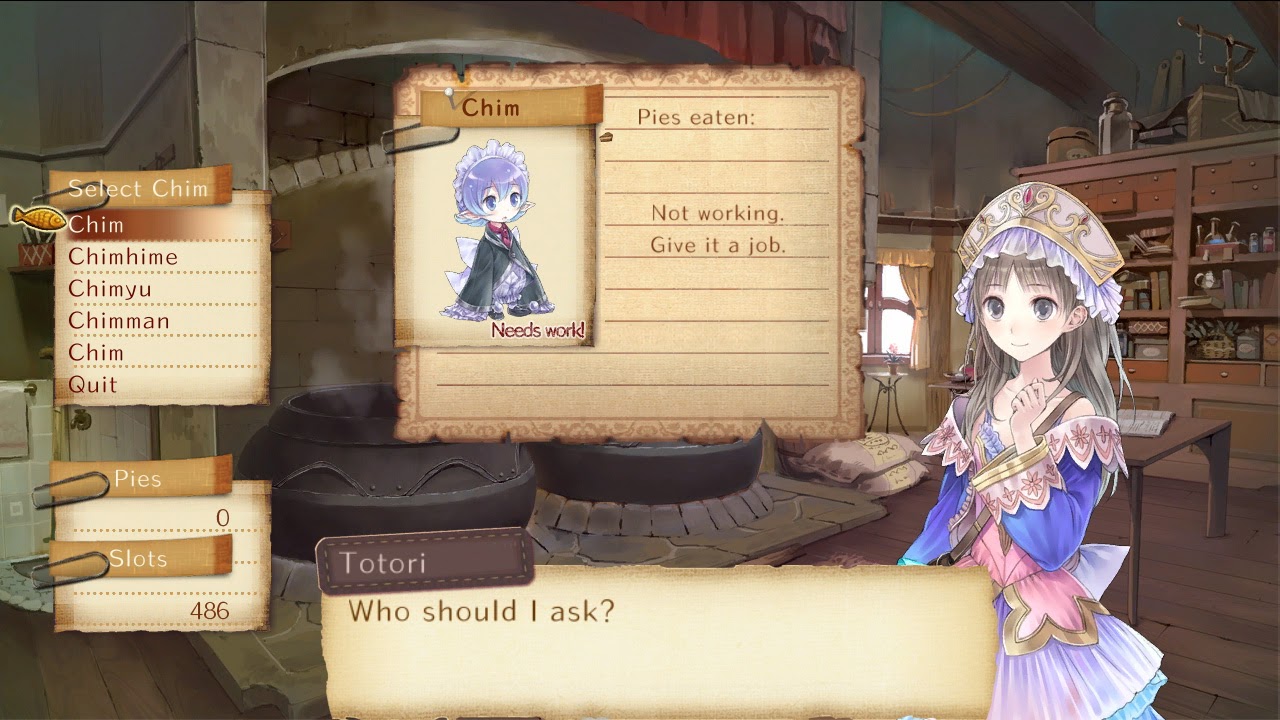
Diving In: Choosing a Trilogy (or Duology)
These -ologies go very well together, and equally far every bit starting the franchise goes, it would exist foolish to jump into the middle or end of a trilogy. With this in mind, one tin can narrow starting place options every bit such:
- Atelier Iris ~Eternal Mana~ (Project A6, first in the Iris trilogy)
- Mana Khemia (Project A9, first in the MK / Al Revis duology)
- Atelier Rorona: The Alchemist of Arland (Project A11, get-go in the Arland trilogy)
- Atelier Ayesha: The Alchemist of Dusk (Project A14, commencement in the Dusk trilogy)
- Atelier Sophie: The Alchemist of the Mysterious Book (Projection A17, first in the Mystery trilogy)
- Atelier Ryza: Ever Darkness & the Hugger-mugger Hideout (Project A21, newest championship)
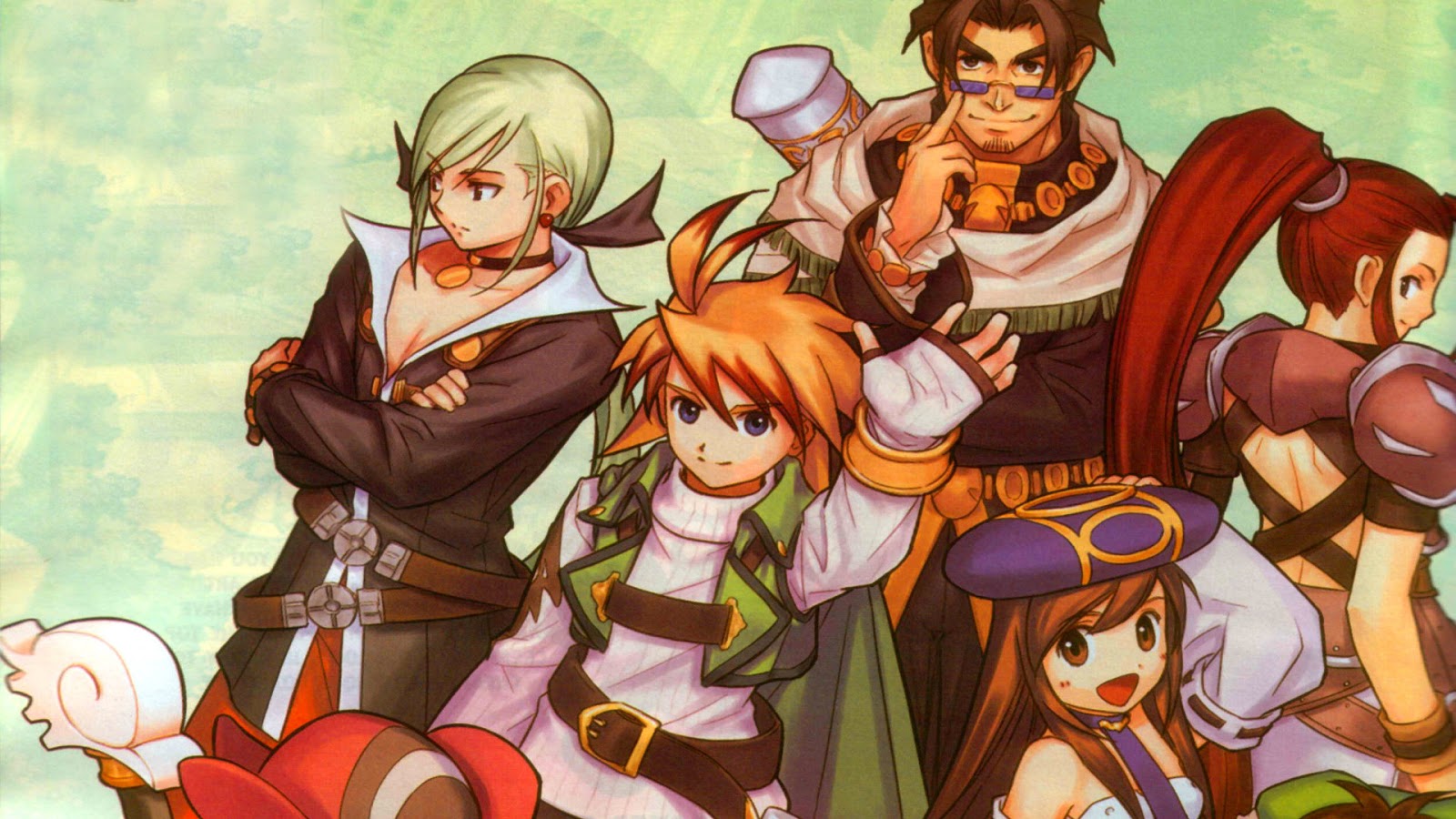
Iris
I could make decent arguments for starting at any ane of these points. However, at that place are important factors to consider. For starters, there is the matter of availability. Atelier Iris has never been ported or remade since the PlayStation 2, and is not presently available as a digital download on the PSN store. Therefore, those who want to start with the earliest available title will need to search for secondhand copies, though they are not terribly expensive. Considering of the Iris trilogy being firmly rooted in traditional RPG mechanics, and in that location beingness no time-limiting mechanics (outside of subquests for Atelier Iris 3: Grand Phantasm), this could be a fun place for actually hardcore fans to get into the roots of the series. This is where I started, personally: at the time, I had met with NIS America about their plans to localize this unique title, and I will never forget playing through this game but afterwards E3 that yr. Atelier Iris was ane of my favorite games of 2005.
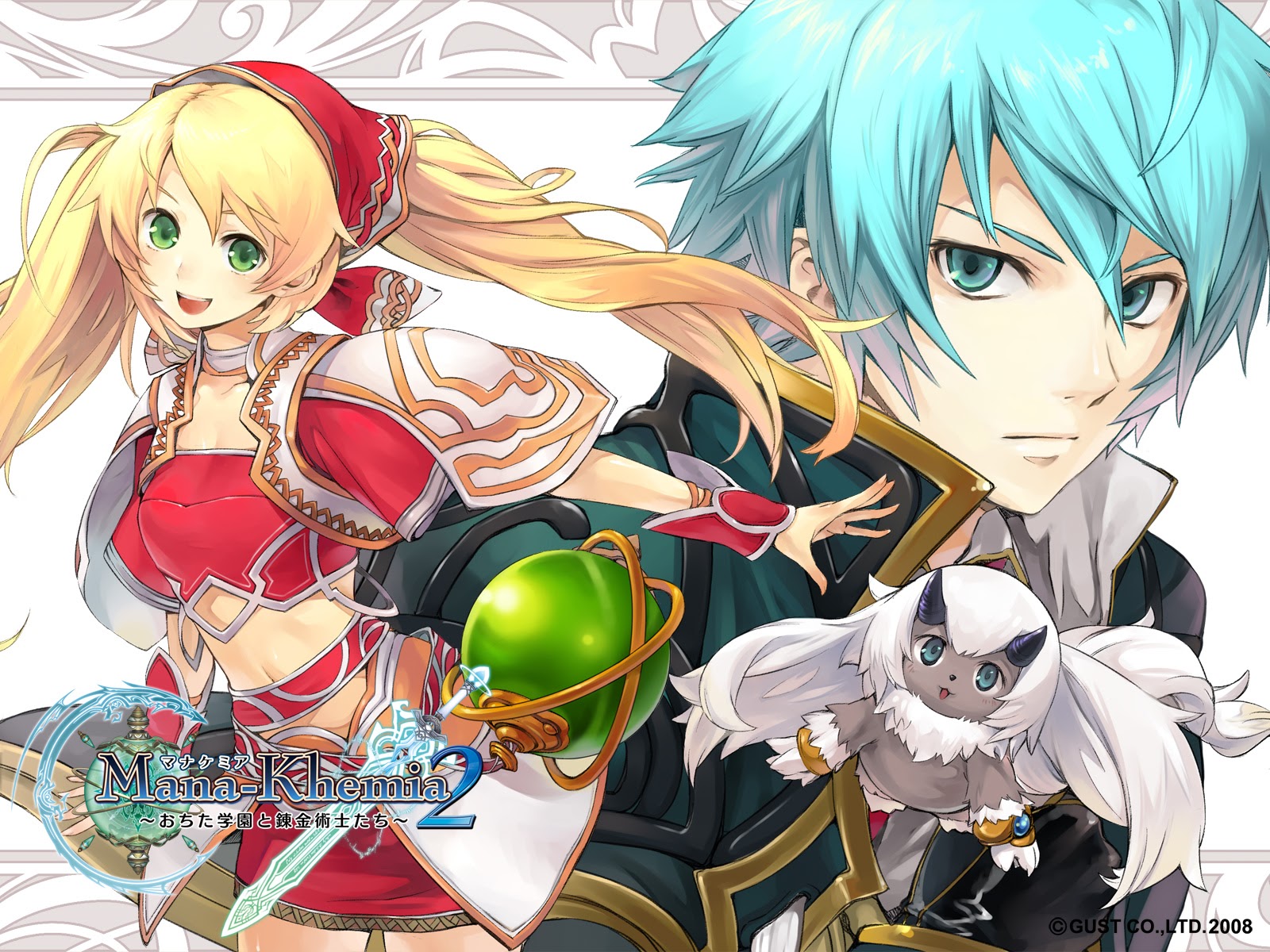
Mana Khemia
Likewise, the Mana Khemia duology is exclusive to PS2 … unless y'all desire to include a particularly disappointing PSP port. These games are fun: they boast large casts, and they demonstrate Gust's evolution toward heavy time management systems; Mana Khemia takes place in an "Alchemy School" and various abracadabra projects are due every quarter. Enjoyable as they are, I do not retrieve this a great place to beginning spring into the franchise.
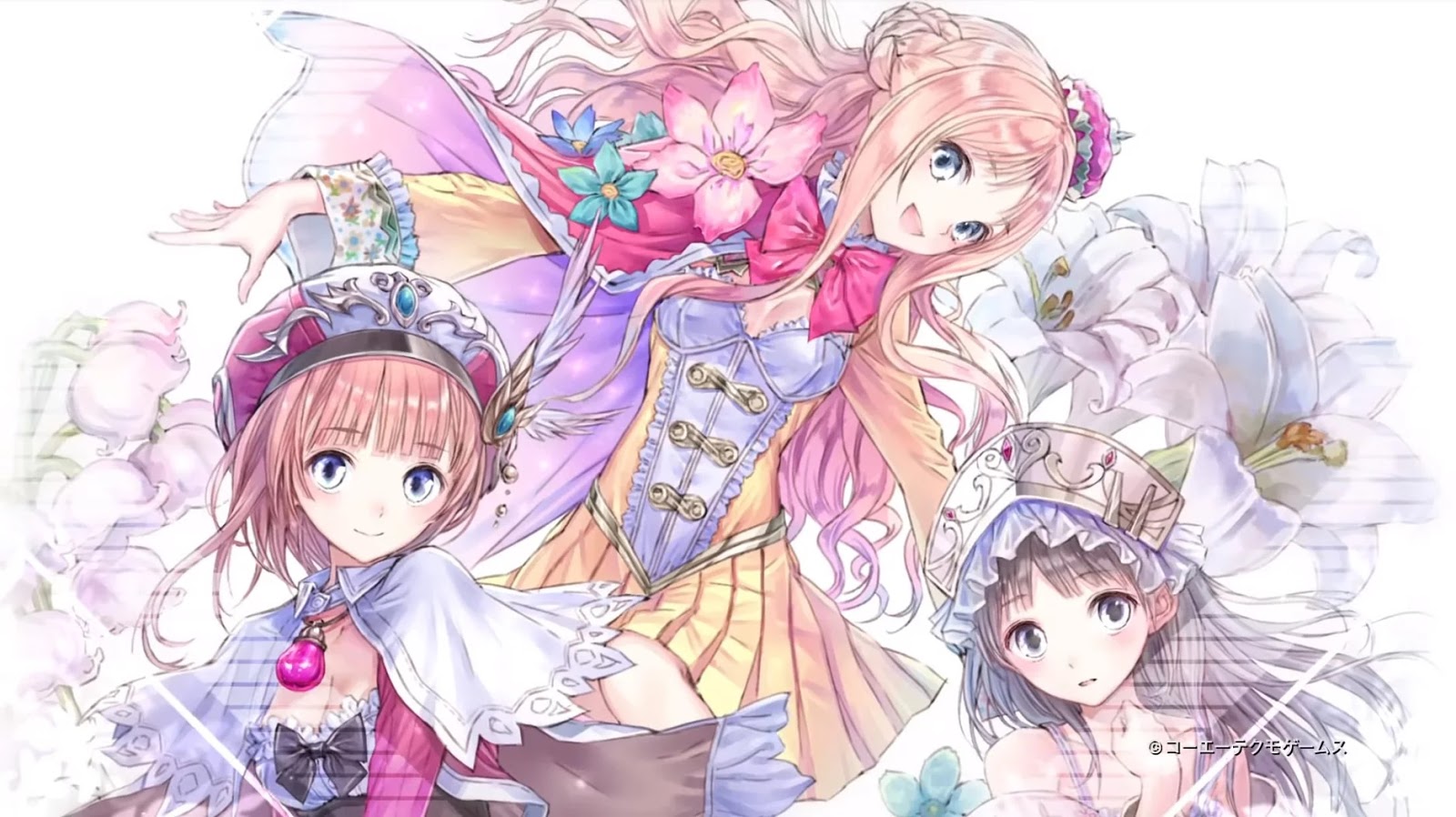
Arland
The Arland trilogy … one could make a decent case for starting with Atelier Rorona, peculiarly in its revamped "Plus" form (bachelor on PS3 and Vita). Rorona was the start championship in the franchise to exist released after Gust was acquired by Koei Tecmo, and the superior graphics engine made the Atelier franchise advance leaps and bounds from PS2 to PS3. The trilogy boasts some memorable recurring characters and a world that is easy to get lost in. Plus, ane could choose to play through A11-A13 and and then skip to A20 to get a total Arland experience. I couldn't argue with that.
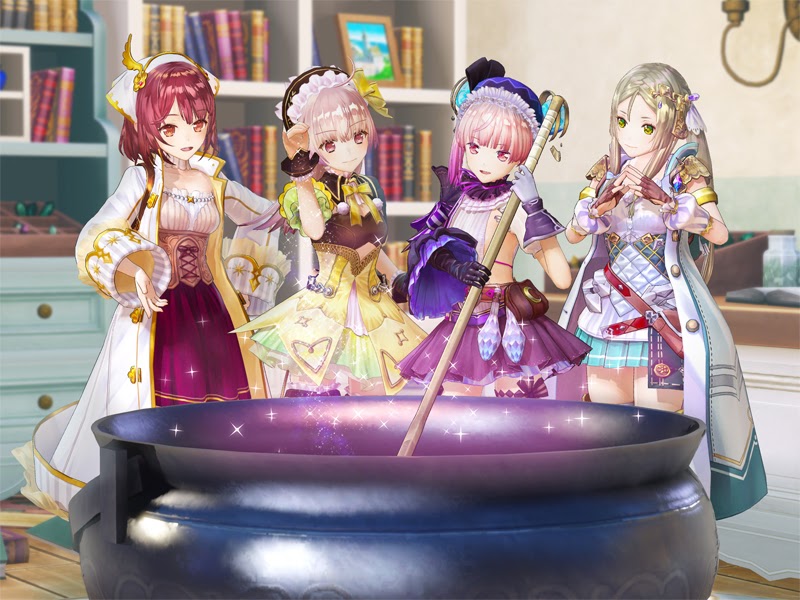
Mystery
Jumping forrard, because I want to save my favorite selection for last — The "Mystery" trilogy has its ups and downs. Players who want to start with Atelier Sophie (A17) may find the experience rewarding. However, this trilogy is notorious among gamers for having some significant weaknesses in the execution of its story, especially with grapheme portrayal and dialogue in Atelier Firis (A18). Our review is no exception to this.
If you wanted to piece of work backwards, and run into the latest Gust has to offer, Atelier Ryza is an absolutely fantastic game. And, like most of the games before information technology, it boasts an admittedly stellar soundtrack.
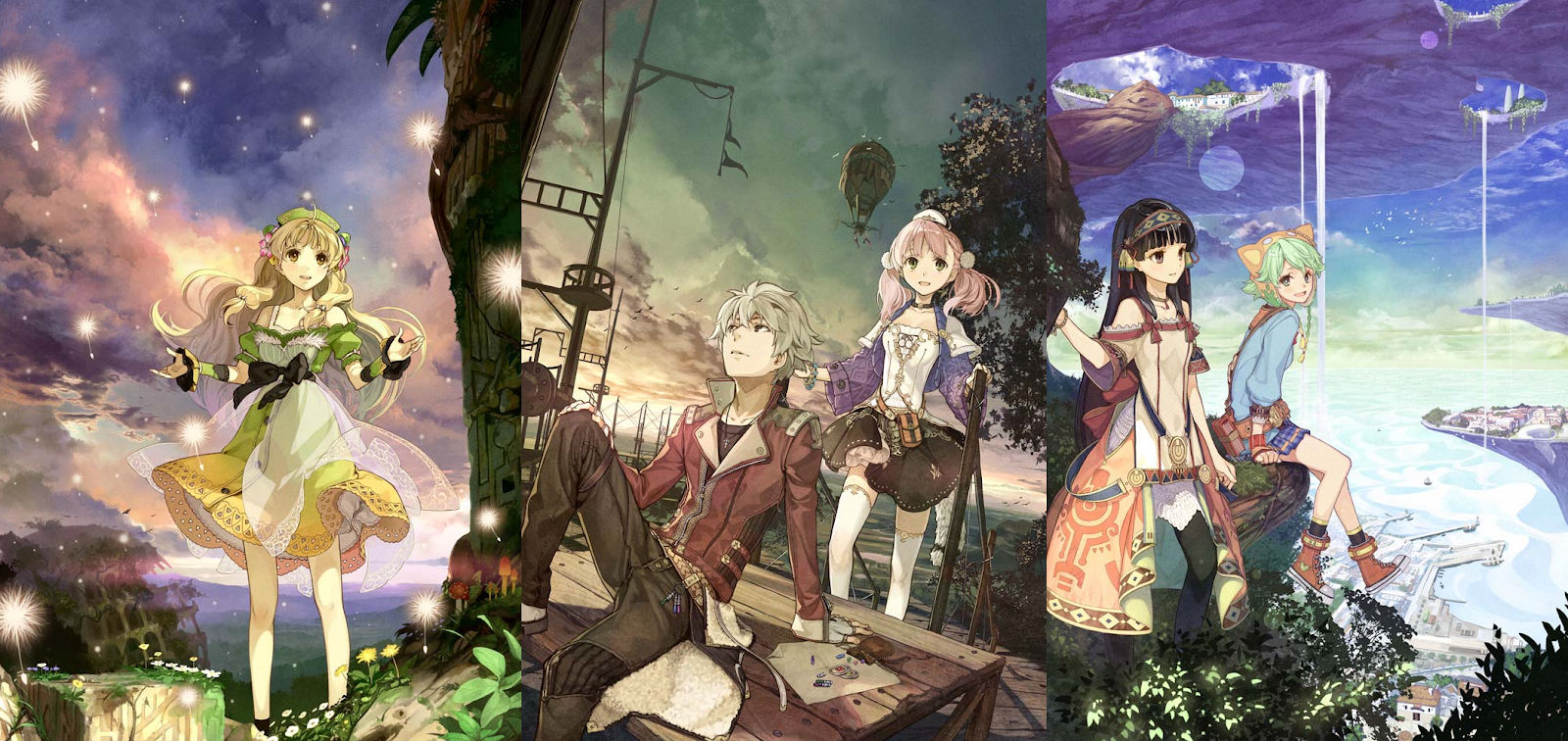
Dusk (ding ding ding!)
Only for my money, if yous want to "Start an Atelier" (game, not open your own real-life workshop), Atelier Ayesha (A14) and the Dusk trilogy is the way to go. Having learned lessons from developing the Arland trilogy, Gust congenital something truly magical with the Dusk trilogy. Atelier Ayesha as a standalone title, would have been practiced enough; the story centers around the young alchemist Ayesha, looking for a way to rescue her sis Nio, who seems to be trapped in some kind of alternating dimension. In her drastic search for a solution, Ayesha (and the player) begin to learn nigh the dangers facing this world. As the name "Sunset" suggests, this is a world that seems to be on its last legs. The soil is eroding, making farming and agriculture particularly challenging. Flowing waters become stagnant or dry upwards altogether. The winds cease to blow, making travel past hot air balloon (the best available technology in the steampunk-lite industries of the Dusk world) harder and harder. Cities, kingdoms, and nation states of all kinds are struggling to communicate and trade. And as Ayesha completes her personal quest, she has only begun to tap into the larger question of how to salve her dying earth.
Moving through the trilogy, gamers are treated to a specially strange title, Atelier Escha & Logy (Projection A15). In Japanese, the discussion for "and" is "to," which means that the Japanese title is Atelier Eschatology — the study or understanding of the finish times, or end of an era. This clever pun also serves to let the histrion know that, like a handful of other titles in the Atelier series, the actor will exist choosing to play as one of two protagonists, the female Escha or the male person Logix (nicknamed "Logy" by his partner Escha). As this game takes place in the same space and time as Ayesha, players volition have aplenty opportunity to befriend characters from the Ayesha cast, though Ayesha herself has become so powerful and and so famous among alchemists by this fourth dimension that Escha and Logy tin can only hope to receive her assist in their quest to revive the world around them. Across the trilogy, Escha and Logy has the most "steampunk" feel to information technology, as in that location is an emphasis on the balance of nature and applied science, and this story also has the almost on-the-nose environmentalist bulletin of whatsoever game in the entire Atelier franchise, let alone the Dusk trilogy.
Finally, Atelier Shallie (A16). Surprise! This one is yet another "pick your protagonist" game. Two immature ladies with 2 very unlike backgrounds happen to encounter, and they happen to share a nickname. Shallistera is a rugged adventurer looking for an opportunity to save her hometown from drought. Shallotte is a novice alchemist and a city girl with a very different demeanor. Both from humble origins, the Shallies volition somewhen find reason to meet the protagonists and other memorable characters from Ayesha and Escha & Logy.
All 3 titles in this trilogy feature solid voice acting in both English and Japanese, ridiculously skillful soundtracks, and some of the about in-depth, complex item synthesis beyond the unabridged franchise. Merely put, this is an first-class trilogy.
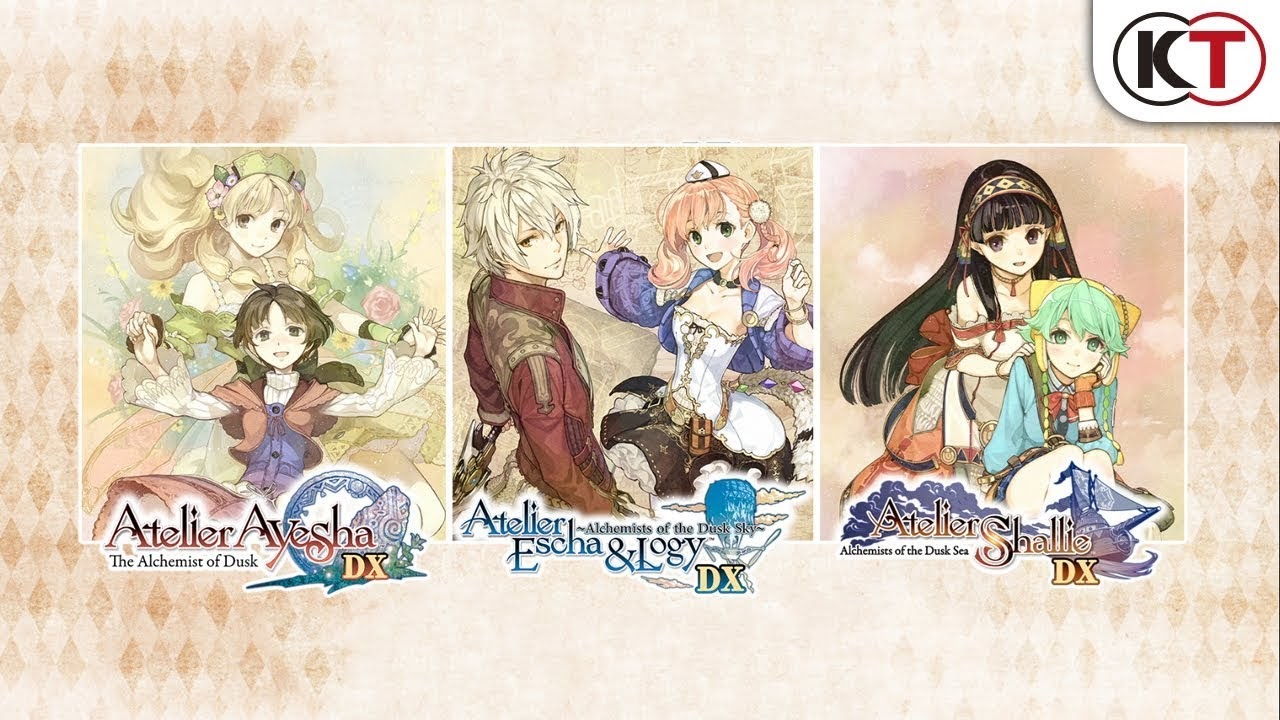
Dusk Goes DX
As a bonus, I should notation that the Dusk trilogy is also the nigh attainable and affordable trilogy from the Atelier franchise to date, as information technology before long exists as a package deal in its revamped "DX" form on PlayStation 4, Nintendo Switch, and Steam. As I write this, the digital trilogy will set yous back 90 USD. However, these DX remakes characteristic unique content that was previously simply found on the Vita versions, which individually would cost far more to download on a now defunct (though much-loved) handheld. And for those who care to shop around, delight know that the physical copies of the Vita upgraded games have skyrocketed prices on secondhand markets. I personally paid more than I care to admit collecting this trilogy for the Vita. The new DX package is wildly convenient, and hands-downwardly my recommended place for prospective Atelier fans to get their start. Should you savour information technology, you can work backward through Arland and into the PS2 titles, or forward into Mystery and beyond.
Speaking of "beyond" — I would be remiss if I did non notation the various side story / spin-off titles in the Atelier franchise. Many of these have not been localized, and those that have come with mixed reviews (example: Atelier Annie for Nintendo DS). I recent spin-off that I have personally enjoyed is the town-building Nelke & the Legendary Alchemists, which includes cast from nearly every game in the Atelier serial, fifty-fifty the ones that have still to exist localized.
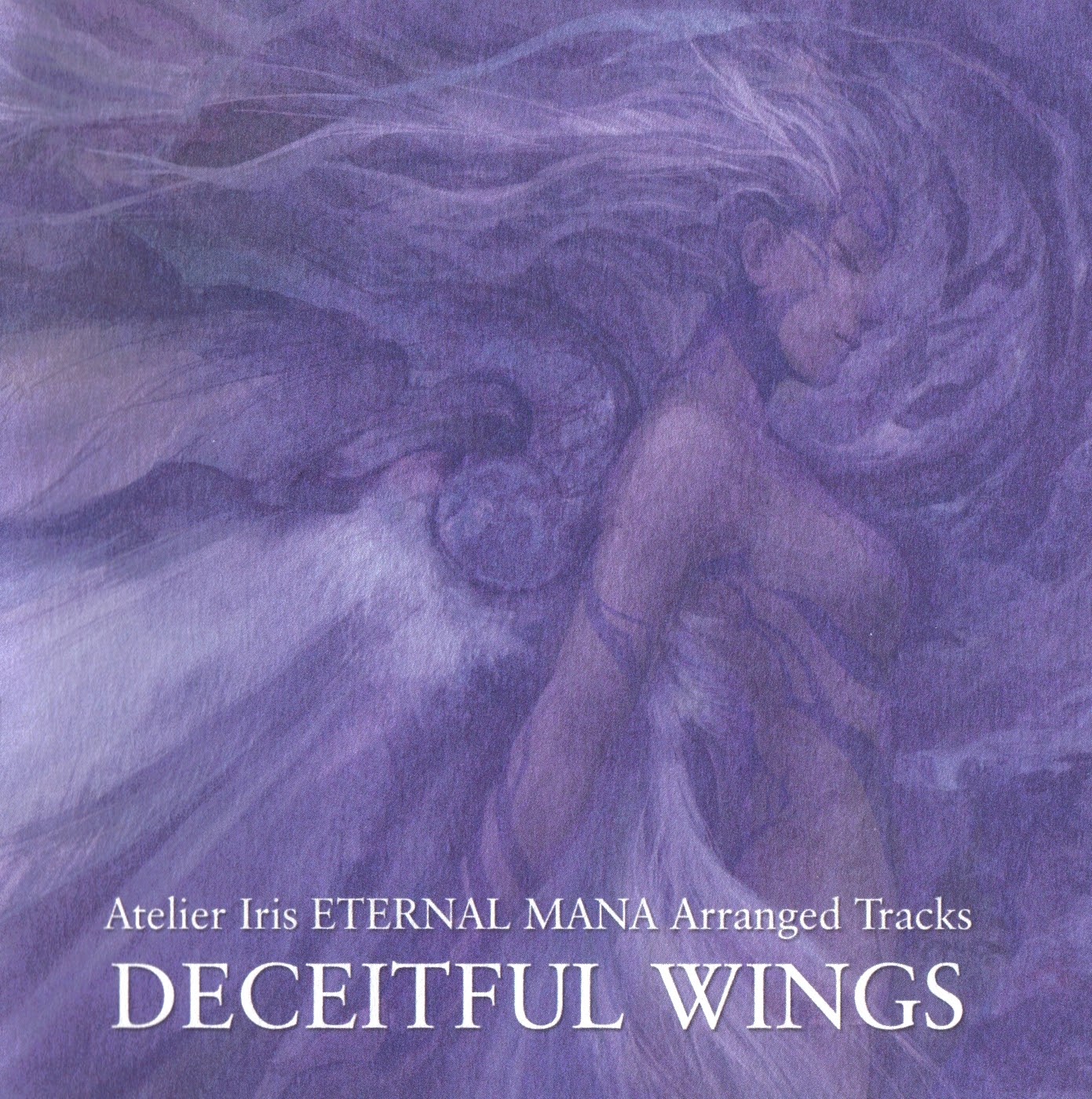
And allow's not forget music, its own reward
Finally, given my penchant for game music, I must emphasize the incredible, genre-spanning soundtracks for these titles. Early in the serial, NIS America recognized the quality of these soundtracks, ofttimes including single-disc "best of" soundtracks with copies of every game. Koei Tecmo has done the same, though these days they tend to relieve those for limited edition copies. If you head to RPGFan Music, you volition find a vast collection of reviews written by myself and other RPGFan staff for most every Atelier championship, both original soundtracks and various types of arranged albums, all with audio samples to whet your taste (ear?) buds. Yes, to engagement, there are about 100 printed soundtracks for this franchise, and you'll find over one-half of them covered amidst our reviews. If you're going to start an Atelier, you're going to need some bang-up music to back-trail the experience!
Atelier Series Where To Start,
Source: https://www.rpgfan.com/feature/so-you-want-to-start-an-atelier/
Posted by: marshallsperse.blogspot.com


0 Response to "Atelier Series Where To Start"
Post a Comment